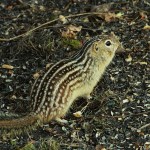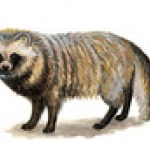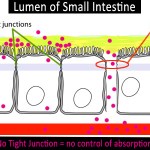APS
Have you ever heard of 'Goodpasture Syndrome'? I'll admit I haven't. Check out the award-winning video below for the 2017 American Physiological Society's video contest to learn about this syndrome. The video was created by Melissa Traver, Samantha Lyons, and Andrianna Walsh from Centenary College of Louisiana. Congratulations!!
The 2017 Experimental Biology conference is almost here!
Here are some of this year's highlights:
Dr. Michael Welsh from the Howard Hughes Medical Institute and University of Iowa will be presenting the Walter B. Cannon Award Lecture. He will be speaking about Cystic Fibrosis.
This year's Nobel lecture in Physiology or Medicine will be given by Laureate Dr. Louis J Ignarro who, along with Drs. Robert Furchgott and Ferid Murad, won the prize in 1998 for discovering how nitric oxide works in the cardiovascular system.
I am also looking forward to the many comparative…
I am getting my poster presentations ready for the Experimental Biology conference next week in San Diego. In my opinion, this is one of the most exciting conferences as we get to hear about the latest physiology research. I cannot wait to share what I learn with you!
Here is a YouTube video with just some of the reasons others love attending these conferences as much as I do. This video was filmed at the meeting in Boston last year.
Day 4 of the meeting turned out to be pretty exciting for a comparative physiologist as well.
The first session that I went to was called "RNASEQ approaches to understanding extreme physiological adaptations." Considering the Comparative and Evolutionary Physiology section business and dinner meeting was the night before, I was impressed at my ability to make it to an 8:00am session the following morning.
The first seminar from Dr. Brooke C Harrison (Univ. Colorado, Boulder) was on "Extreme cardiac growth and metabolism in the Burmese python after feeding." He spoke about how the cells…
Day 3 of the Experimental Biology meeting was arguably one of the most exciting for comparative physiology. Here are the highlights from Monday:
Morning Seminars:
Birgitte McDonald from Aarhus University, Denmark presented, "Deep-diving sea lions exhibit extreme bradycardia in long-duration dives." Birgitte and Dr. Paul Ponganis measured the heart rate of California sea lions (Z. californianus) using digital electrocardiogram loggers and found that the heart rate was reduced (bradycardia) during dives along with reduced blood flow to the lungs and periphery. This helps preserve the oxygen…
The meeting is off to a good start.
I attended a session sponsored by the American Physiological Society on Animal Models of hypertension caused by the nervous system, or neurogenic hypertension. While their definition of comparative really only meant rats, dogs and humans, I found it very interesting nonetheless. The speaker, Dr. Olson from the University of Minnesota, explained the pros and cons of trying to develop devices to treat neurogenic hypertension using different animal models. The reason why rodents are not good models is because they are too small to develop devices for in…
I am very excited about the Experimental Biology conference that starts this weekend. I have my bags packed, my poster printed and I am heading to the airport to catch my plane. I can't wait to learn about all of the exciting physiology (especially comparative physiology) research. I will be sure to keep you up-to-date as well!
I am very excited about the upcoming Experimental Biology conference that starts next weekend. I just looked through the Spring newsletter for the Comparative and Evolutionary Physiology section of the American Physiological Society. Check out the exciting programming in comparative physiology at this year's conference:
Monday, April 28
10:30 AM – 12:30 PM
Featured Topic: Abstract-Driven Trainee Session
3:15 PM – 5:15 PM
Featured Topic: Comparative Physiology of Aging and Senescence
Tuesday, April 29
8:00 AM – 10:00 AM
CEPS Symposium: RNAseq Approaches to…
I just watched a funny entry submitted for the 2012 American Physiological Society's (APS) video contest on some of the differences betweens humans and dogs. The authors of the video were Nate Brault and Thomas Szamocki from Beloit College. It is also available in the APS Archive of Teaching Resources, a searchable archive of teaching resources and activities to help teach K-12 as well as college students about physiology.
Things I learned at the APS March meeting. Updated as I learn them. That's right: real time updates of connectivity of my neurons translated into html translated into text and pictures on your browser.
A Yale experiment led by Robert Schoelkopf has demonstrated the Deutsch-Jozsa algorithm and Grover's algorithm (two qubit algorithms) using transmon qubits (superconducting qubits.) Fidelities for their implementation are in the 80 to 90 percent range. Paper: arXiv:0903.2030.
Also, congrats to Robert Schoelkopft for winning the "2009 Joseph F. Keithley Award For Advances in Measurement…



